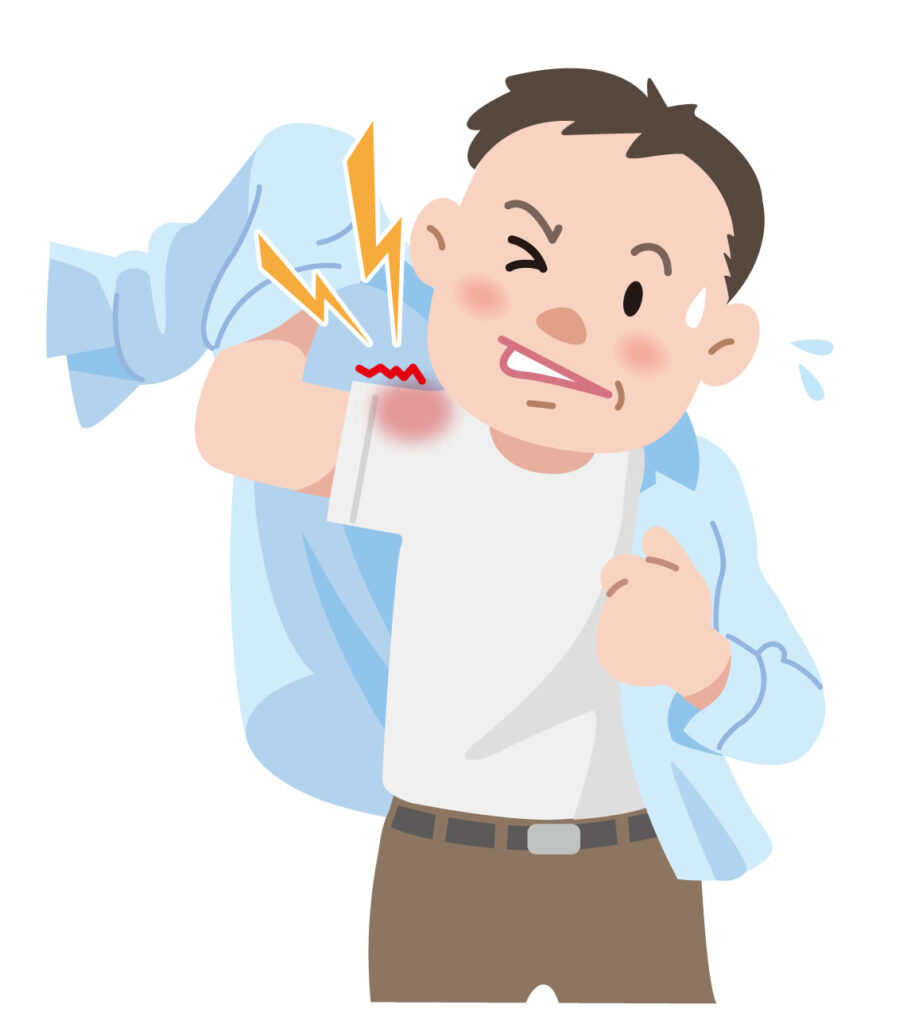Frozen Shoulder (Gojuu Kata)
Frozen Shoulder (Gojuu Kata) refers to a condition where the tissues around the shoulder joint become inflamed, causing pain and restricted range of motion. Frozen shoulder is divided into three stages: "acute phase," "chronic phase," and "recovery phase." Formally, it is called "Adhesive Capsulitis" or "Frozen Shoulder." It is commonly seen in individuals around the age of 50 but can occur in other age groups as well.

[Main Symptoms]
・Pain: A dull pain occurs in the shoulder and upper arm, which can be especially intense at night or when moving the arm.
・Restricted Range of Motion: Difficulty in movements such as raising the arm or rotating it outward.
・Stiffness: The shoulder joint becomes stiff, causing discomfort when moving.
[Main Causes]
・Aging: The tissues around the shoulder joint are more prone to degeneration as we age.
・Overuse: The strain from sports or repetitive movements can have an impact.
・Shoulder Injuries: Previous injuries can cause inflammation.
・Medical Factors: Conditions such as diabetes and Parkinson's disease are also considered risk factors.
[Characteristics of Each Disease]
| Acute | Chronic | Recovery period | |
| Pathogenesis | inflammation | Contracture | - |
| Symptoms | The pain is most severe | Pain is reduced, but range of motion restriction persists | Pain is gone and range of motion is improved |
| Causes of limited range of motion | pain | Contracture | - |
[Diagnosis and Treatment]
Diagnosis involves visual inspection and palpation by a physician, and in some cases, imaging diagnostics may be used. Common treatment methods include rest, physical therapy, and the use of pain relievers or anti-inflammatory medications. In severe cases, the use of a brace, injection therapy, or surgery may be considered. Early diagnosis and appropriate treatment are important.
Outpatient Reception & Consultation Hours
| Business Hours | 月 | 火 | 水 | 木 | 金 | 土 | 日 |
|---|---|---|---|---|---|---|---|
| 13:00~17:00 | ● | ● | ー | ● | ● | ー | ● |
| 18:00~20:00 | ● | ● | ー | ● | ● | ー | ● |
【Closed Days】 Wednesday, Saturday, and Public Holidays.
※translates to "Reception ends 30 minutes before the end of consultation hours."
